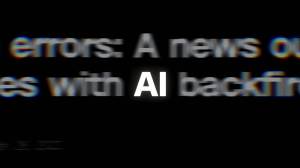San Antonio is getting serious about data governance

The City of San Antonio on Friday officially adopted a new, comprehensive data-management strategy to better share information between the city’s 43 agencies and the public, as well as make more data-driven decisions, IT leaders told StateScoop.
The city’s new strategy, called the “Data Informed Government Program,” establishes for the first time in San Antonio a written authority on where, how and what data is used throughout the city, city Chief Innovation Officer Brian Dillard said. That premise is to ensure that different agencies hold the same core values around data governance — including privacy, security, integrity and sovereignty — and that they aren’t holding back information that could potentially be valuable for other city staff to learn from.
Like many cities, San Antonio has an open data portal that the public can access at any time, but until Friday, departments weren’t required or advised on how to best store, share and analyze their data. The new strategy is a more “long-term and sustainable” effort, said San Antonio Smart City Coordinator Emily Royall, adding that the city plans to take the next four years to train every agency on the best practices of data-sharing and -stewardship.
“The goal of the program is to establish core values across the organization when it comes to the use of data and to really equip our city departments with tools and resources that they need to improve their own data management operations,” Royall said.
The idea for a new strategy was born out of the city’s work with Bloomberg Philanthropies’ What Works Cities program earlier this year, Royall said. San Antonio received a certification from the organization and decided to extend some of the data-driven programs that it had included in its application — COVID-19 dashboards, open data hubs and videos to teach the public about its data.
“Those lessons learned were integrated into the design of this new, more long-term and sustainable program,” Royall said. “We basically put those pilots into practice city-wide across the organization. “
The strategy encompasses a policy, guidelines and procedures document, as well as a new curriculum within the city’s “Innovation Academy,” an intensive training program for city staff to learn about process redesign, data analytics and user centered design. Royall and Dillard said they’ll soon help each city department identify a “data steward” who will be responsible for assessing the data literacy and data needs of their department. They said after departments complete their assessments, they’ll be grouped into cohorts in the academy, depending on their skill levels with data management.
The city also laid out ground rules for how vendors can interact with the city’s data, Royall said, as well as how the city can store sensitive information from its own research, including data collected from the city’s new partnership with the University of Texas at San Antonio.
“The goal of all of them is to reshape how the City of San Antonio orients itself to the use of data and make commitments to residents about what we will and will not do with their data,” Royall said. “And set rules for vendors and the private sector to play in our sand box, if you will, when it comes to data.”






